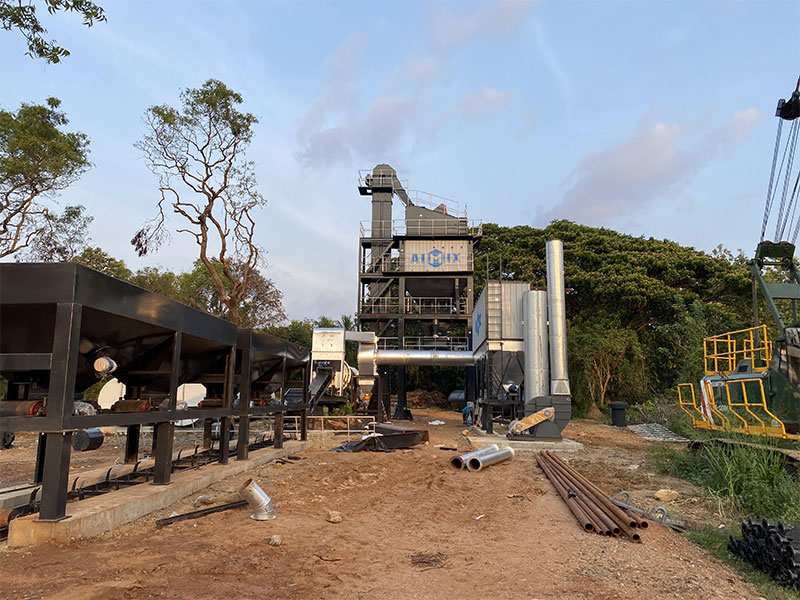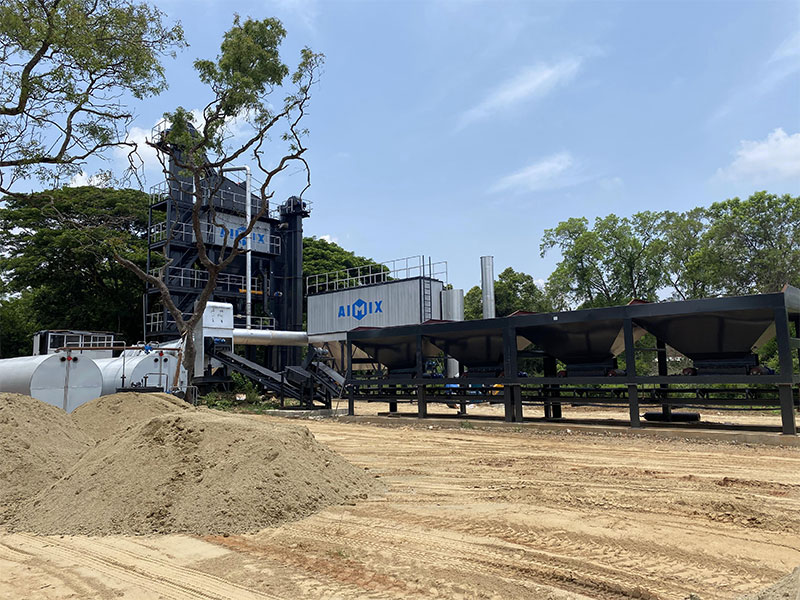Asphalt mixing plants play a pivotal role in modern infrastructure development, providing the essential material for constructing roads, highways, and various pavement surfaces. The efficient and reliable operation of these plants is critical to ensure the timely completion of projects and the quality of the asphalt produced. This article outlines essential strategies and best practices that asphalt plant operators can implement to ensure the normal and smooth operation of their facilities.
Regular Maintenance and Inspection
Routine maintenance is the backbone of mesin amp aspal operation. Regularly inspecting and servicing all components, including the drying drum, mixing tower, bitumen storage tanks, and control systems, is essential to prevent unexpected breakdowns and downtime. Create a comprehensive maintenance schedule that includes lubrication, cleaning, and replacement of worn parts.

Operator Training and Skill Development
Well-trained and skilled operators are key to maintaining the smooth operation of an asphalt mixing plant. Provide comprehensive training to operators on plant operations, maintenance procedures, safety protocols, and emergency response. Skilled operators can quickly identify and address issues, optimize production processes, and ensure the consistent quality of the asphalt mix.
Quality Control Measures
Implement rigorous quality control measures to ensure the asphalt mix meets specified standards. Regularly test raw materials, aggregates, and bitumen for quality and consistency. Monitor the gradation, temperature, and moisture content of aggregates to achieve the desired mix properties. Utilize testing jual amp asphalt mixing plant to verify the properties of the produced asphalt, such as density, viscosity, and binder content.
Efficient Heating and Drying
Proper heating and drying of aggregates are crucial for producing high-quality asphalt mixes. Calibrate and maintain temperature sensors to ensure accurate readings. Monitor the temperature of aggregates in the drying drum and adjust burner settings accordingly. Efficient heating and drying processes contribute to optimal binder adhesion and mix homogeneity.
Dust Collection and Environmental Compliance
Effective dust collection systems are essential to prevent environmental pollution and maintain a safe working environment. Regularly clean and maintain dust collectors, filters, and exhaust systems to ensure proper functioning. Comply with local environmental regulations regarding emissions and dust control to minimize the impact of plant operations on the surrounding area.

Optimized Mixing and Production
Achieving the desired asphalt mix consistency requires precise control over the mixing process. Regularly calibrate and maintain the mixing equipment, including the paddles, arms, and mixing chamber. Monitor and adjust the proportion of aggregates, bitumen, and filler materials according to the mix design specifications. Implement intelligent control systems that enable real-time adjustments to optimize mix production.
Backup Systems and Redundancy
To minimize downtime in case of technical failures, incorporate backup systems and redundancy wherever feasible. Have spare parts, critical components, and backup power systems readily available to quickly address unexpected disruptions for the amp mini aspal. Implement automated monitoring and alarms that notify operators of potential issues, allowing them to take corrective action promptly.
Weather and Seasonal Considerations
Different weather conditions and seasons can impact the performance of asphalt mixing plants. Adjust plant operations and mix design parameters to account for temperature variations, humidity, and precipitation. During colder months, preheating aggregates and bitumen may be necessary to maintain proper mixing temperatures.
Effective Communication and Collaboration
Maintain open lines of communication between different departments and teams involved in plant operations, including maintenance, production, quality control, and management. Regularly share information, insights, and challenges to foster collaboration and facilitate swift problem-solving.
Conclusion
The successful operation of an asphalt mixing plant indonesia requires a multifaceted approach that encompasses regular maintenance, skilled operators, stringent quality control, and efficient production processes. By implementing the strategies and best practices outlined in this article, asphalt plant operators can ensure the normal and smooth operation of their facilities. A well-maintained and optimally operated asphalt mixing plant not only enhances project timelines and quality but also contributes to sustainable infrastructure development and the advancement of the construction industry.